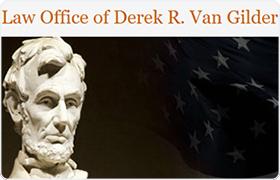Mc Dade Family Law Lawyer, Texas
Sponsored Law Firm
-
 x
x

Click For More Info:
-
Law Office Derek R. Van Gilder
916 Main St Bastrop, TX 78602» view mapDivorce & Family Law State-Wide Reputation For Excellence
When the time comes for you to find a Texas lawyer you can rely on, the Texas attorneys at the Law Office of Derek R. Van Gilder will be there with you every step of the way.
800-254-4791
Includes: Collaborative Law, Domestic Violence & Neglect, Paternity, Prenuptial Agreements
Amanda Lee Carter
Juvenile Law, Social Security, Family Law, Personal Injury
Status: In Good Standing Licensed: 13 Years
Kayci Schultz Watson
Administrative Law, Personal Injury, Family Law, Litigation
Status: In Good Standing Licensed: 8 Years
Christopher Matthew Dillon
Juvenile Law, Estate Planning, Domestic Violence & Neglect, , Business
Status: In Good Standing Licensed: 25 Years
Mark Ral Brochstein
Family Law, Divorce & Family Law, Criminal, Consumer Bankruptcy
Status: In Good Standing Licensed: 29 Years
Charlotte G. Hinds
Family Law, Criminal, Wills, Juvenile Law
Status: In Good Standing Licensed: 40 Years
Tina Marie Tiner Zapalac
Elder Law, Family Law, International Other, Litigation
Status: In Good Standing Licensed: 24 Years
Bryan W. Mcdaniel
Wills, Family Law, Bankruptcy, Bankruptcy & Debt
Status: In Good Standing Licensed: 31 Years
Lisa Diane Patterson
Commercial Real Estate, Public Utilities, Family Law, Administrative Law
Status: In Good Standing Licensed: 27 Years
Jed I. Oliver
Family Law, International Other, Juvenile Law, Clean Air Practice
Status: Inactive Licensed: 54 Years
 Derek R. Van Gilder Bastrop, TX
Derek R. Van Gilder Bastrop, TX Practice AreasExpertise
Practice AreasExpertise
